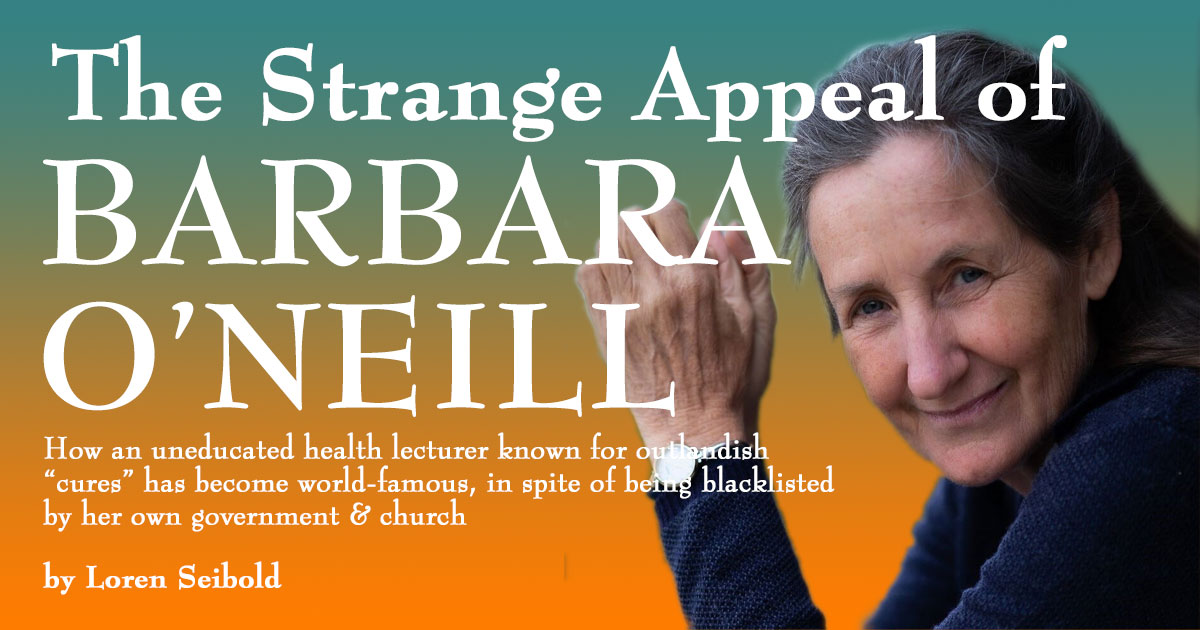True rest is not a place, it’s a Person and His name is Jesus. ✨ Source: https://www.youtube.com/shorts/C88tnT2QEBk
The Strange Appeal of Barbara O’Neill

by Loren Seibold | 21 October 2025 | This week a friend sent me a notice saying that health lecturer Barbara O’Neill is being sponsored by a major Seventh-day Adventist congregation in western North Carolina. Tickets for the event are $2oo, and they warn they could sell out the 900-seat auditorium. It’s not the only […] Source: https://atoday.org/the-strange-appeal-of-barbara-oneill/
Idea-thon Empowers Thirteen Adventist Teams to Create Digital Tools for Mission
Thirteen creative teams of students and professionals gathered on October 2, 2025, for the launch of the Idea-thon, a technology and innovation challenge designed to inspire “digital-first” solutions to advance the mission of the Seventh-day Adven… Source: https://adventist.news/news/idea-thon-empowers-thirteen-adventist-teams-to-create-digital-tools-for-mission
God First: Your Daily Prayer Meeting #1152
"If you believe, you will receive whatever you ask for in prayer" (Matthew 21:22, NIV).
Tag someone in need of prayer, and kindly share your prayer requests here:
https://wkf.ms/3DBuapQ Source: https://www.youtube.com/watch?v=71tC65Oz5as
Godpods Become Teachers to Villagers
Mr. Kambi shares how God is working through Adventist World Radio in his community. What began under a tree without books or chairs is now a growing classroom filled with learning, joy and the Word of God. Through AWR Godpods, villagers who once could not write a single letter are now reading, writing and even beginning to understand Swahili. Support the sharing of more Godpods to unreached people groups. Visit https://awr.is/godpods. #AWR360 #BroadcastToBaptism Source: https://www.youtube.com/shorts/kL9f-xorJw0
A Hard Job and a Life-Changing Encounter
What can one man do? Marlene’s life seemed locked in a cycle of hardship, with long hours and little rest, but in the midst of it all, God placed Brian in her path. He was the man whose help and advice would completely change her future. Through his simple introduction to Nuevo Tiempo Radio, Marlene found a new desire to live. Learn more about Nuevo Tiempo Radio at https://awr.org. Watch Marlene’s full story here: https://youtube.com/watch?v=E9wQwYAs1Ro #AWR360 #BroadcastToBaptism Source: https://www.youtube.com/shorts/tUHEw0Nnnww
Loma Linda University Children’s Hospital Recognized as a Best Children’s Hospital for Fifth Consecutive Year
Loma Linda University Children’s Hospital has been recognized as a Best Children’s Hospital by U.S. News & World Report for 2025-2026. The hospital is ranked 8th in California, United States, and 9th in the Pacific Region in U.S. News’ 2025-2026 … Source: https://adventist.news/news/loma-linda-university-children’s-hospital-recognized-as-a-best-children’s-hospital-for-fifth-consecutive-year
4: The Conflict Behind All Conflicts — It Is Written — Discussions with the Author

Join It Is Written Sabbath School host Eric Flickinger and this quarter’s author, Dr. Barna Magyarosi, as they provide additional insights into this week’s Sabbath School lesson.”
 (0)
(0)4: The Conflict Behind All Conflicts — Hope Sabbath School Video Discussion
View an in-depth discussion of The Conflict Behind All Conflicts in the Hope Sabbath School class led by Pastor Derek Morris.
Click on the image below to view the video:
With thanks to Hope Channel – Television that will change your life.
 (0)
(0)Giovanni 2:24-25 – Apri la porta del tuo cuore
"Ma Gesù non si fidava di loro, perché conosceva tutti, e perché non aveva bisogno della testimonianza di nessuno sull'uomo, poiché egli stesso conosceva quello che era nell'uomo”. 📖 Giovanni 2:24-25
—
💌 Apri la porta del tuo cuore
🗣 Speaker: Alessia Zagara Source: https://www.youtube.com/watch?v=74HqttuaW60
- « Previous Page
- 1
- …
- 163
- 164
- 165
- 166
- 167
- …
- 4839
- Next Page »

